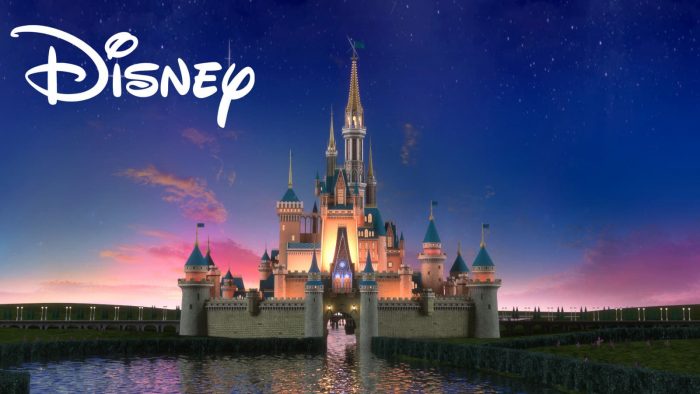Disney receives a lot of criticism for its perceived anti-feminist messages depicted by the princesses and their so-called quest for a knight in shining armor. However, the messages conveyed in the Disney classics are much more complex and speak on the topics of unconditional love found in discovering the fairytale within as well as core lessons regarding freedom, power and how learning self-love can lead to a utopian society. In this article, I will address Cinderella, Beauty and the Beast and Aladdin.
Cinderella
Cinderella is perhaps the most misunderstood of all the princesses. First of all, Cinderella may be a victim of unjust circumstances, but she embodies powerful messages for all: she does not play the role of the victim, she is humble, diligent and extremely grateful. Despite the cruelty of her sisters and step-mother, Cinderella never retaliates with hate or bitterness. She does not speak negatively toward others or feel sorry for herself. Cinderella sings, “no matter how your heart is grieving, if you keep on believing, the dream that you wish will come true.” Cinderella’s unwavering optimism allows her to overcome her harsh circumstances; she spends a lot of time fantasizing and through that, she manifests her dreams – a ticket for a night off to dance and a dress to make her feel beautiful. Cinderella was not looking for someone to save her. Cinderella attends the ball to have a good time and feel included despite how the immediate people in her life treat her.
Cinderella represents self-love and how, with focus, gratitude, and faith, we can achieve even the loftiest of dreams. Prince Charming recognizes her beauty because she is genuine and not shallow. His status does not interest her in the slightest. It is because of who she is that he falls in love with her – she was not seeking a prince; she was content in herself. Cinderella was seeking freedom. By embodying self-love, gratitude, humility, optimism, and grace, Cinderella set herself free from her circumstances. If that isn’t an empowering message, I don’t what is. This is why the Disney castle is referred to as Cinderella’s castle because she is the matriarch of Disney and inspiration that when we learn unconditional love of the self and others, we can create our ideal reality.
Beauty and the Beast
Intelligent, witty, curious and humble, Belle teaches the importance of having an inquisitive mind as well as it’s what’s inside that matters most. Unconditional love is the core message of this fairytale. In the beginning, Belle walks around town with her nose stuck in a book uninterested in how she is perceived by the townsfolk. Belle sings about the book she is reading, “oh, isn’t this amazing? It’s my favorite part because you’ll see, here’s where she meets Prince Charming, but she doesn’t discover that it’s him till chapter three.” This implies that Belle sees love as something that grows over time, challenging the superficial notion of love at first sight. “What a puzzle to the rest of us is Belle” is a line spoken by the people in her small town who see her as an outsider because she questions things, is not complacent nor swayed by the opinions of others or their preoccupation with superficiality. She is constantly challenging herself and does not take things at face value. She embodies self-love in denying Gaston’s arrogant proposal by telling him, “I don’t know Gaston, I guess I just don’t deserve you.” This is such an important lesson in discernment; always be compassionate but honor yourself.
Both Gaston and Beast lack inner beauty because they are riddled with narcissism and hungry for power. Beast, who was once a chauvinistic and narcissistic leader, punished by the “hideous” witch whom he dismisses because he only values outer beauty and power. Beast’s only connection to the outside world is through his mirror, symbolizing how he must face himself to learn self-love. It is both Gaston’s and Beast’s belief that external beauty equals power that leads them to their detriment.
In the fairytale, Belle searches for her lost father and discovers Beast has locked him away in his castle. Belle offers to take her father’s place as a prisoner. Her compassion tugs at Beast’s heartstrings throughout the story. When Beast lets her leave the castle this tells an important message in unconditional love; if you love someone let them go and if they were meant for you, they will return. Love should be compassionate and not controlling.
Over time, Belle’s compassion tears down Beast’s walls he has built around his heart and he opens up to true love. She frees Beast by teaching him to love. When Gaston attacks, Beast tries to choke him. Belle then calls out to him, which reconnects him to his compassion, so he lets Gaston go. Gaston’s death portrays a beautiful message that compassion and unconditional love can liberate a person from their ego. Beauty and the Beast tells how the exterior is simply a mask we wear and our true power lies in our ability to love – the curse is broken when Beast masters the art of self-love and the powerful lesson that to love and be loved in return is the greatest power of all.
Aladdin
Aladdin further reiterates how self-love is the ticket to freedom. From Jasmine’s desire for freedom from her unfulfilling life of wealth and privilege to Aladdin’s desire for abundance to set himself free from the financial restrictions he faces, we see two sides of the same coin – neither extreme wealth nor extreme poverty offer freedom. The genie, a character who can give others freedom but not himself, gently teaches us how giving to others holds no power unless you are able to give to yourself; when we empower ourselves, we empower others. Power-hungry Jafar does not understand the importance of respecting other people’s free will and through his attempts to control others he ultimately enslaves himself. Thus, freedom cannot be granted by pursuing power or controlling others.
In the fairytale, Aladdin uses his second wish to become a prince in order to win Jasmine’s heart. He does not succeed. Jasmine loves Aladdin, not Prince Ali, reiterating that we should love each other for who we are, not what we can provide. Hiding his authentic self leads Aladdin into peril. The irony of this fairytale is that Aladdin never needed a genie to grant him his freedom, he simply needed to love himself enough to believe Jasmine would love him in return. By setting the genie free we see a deeper meaning behind the fairytale; there is nothing that can be granted externally that can give us emotional fulfillment – when we transcend the illusion that happiness can be bestowed on us by having our wishes granted, we set ourselves free. We must love ourselves unconditionally, no matter our circumstances, and when we do, our self-love will grant our heart’s desires and empower those around us.
Every Disney fairytale is deeply complex and all uphold powerful messages that cast light on the human experience and how, as a collective, we can grow into better versions of ourselves by embodying self-love, compassion for others and recognizing that love is the purest form of power – it leads to freedom. There is nothing outside of ourselves that can make us feel whole. We must first work on the fairytale within.
I look forward to any suggestions for other Disney classics to analyze or any comments on your interpretation of Disney fairytales. I spend a lot of time trying to decode things through a matriarchal lens and wondering what the world would look like through a more matriarchal approach.












Read 0 comments and reply